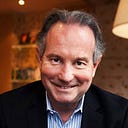Addictions
There are three main choices in life; protection, life maintenance or following your urges. Firstly, and most importantly, is protection. If you are in danger, concerning yourself with good lifestyle principles would do you no good if you don’t take acute steps to extricate yourself from the immediate dilemma.
But, for most of the time, an immediate threat to our acute survival is not occurring, so we are left with the last two choices. From moment to moment, we can either follow principles that maintain good health or follow our urges.
The five keys to ultimate health are:
- Quit all addictions
- Cultivate good quality sleep
- Eat less and eat more naturally
- 3 to 5 hours every week of testing exercise
- Cultivate peace, happiness and contentment
Following your urges can be as common and obvious as reaching for that second helping, having that extra unnecessary glass of wine or even being too lazy or too tired to exercise. But, can I make the important point that I have never seen a situation where a person benefits from the excessive practice of following their urges.
There are many reasons we all do so, but the reality is that, in the end, following urges can ultimately lead to bad habits and often addictions. Modern humans have made the quick fix an art form. One of the paradoxes of life is that the quick fix is typically very bad for you in the long run.
Nothing could be closer to the mark than the recent evidence emerging from both Australia and the UK around increasing carnage from prescription painkillers and sedatives. It now appears that in both countries there are more deaths from overdoses (both accidental and intentional) from prescription painkillers and sedatives than from illegal narcotics.
A recent disturbing report from the UK has suggested 1 in 11 people are taking antidepressants, 50% of whom are taking these drugs for more than two years and strangely one third for no good medical reason at all. The report goes on to state that a quarter of a million people are taking sedatives such as Valium for more than six months when the recommended limit is one month. Taking Valium or related drugs for more than six weeks is associated with a 50% chance of addiction.
With the medicalisation of modern society, there is the strong urge created to reach for a pill to solve a problem. As a doctor, I believe the short-term use of medications when an acute physical or emotional crisis occurs is certainly justifiable but now it appears we have purely shifted the crisis to a potential serious, and at times lethal, long-term problem.
As a community, we need to explore much better ways to handle these events rather than seeing long-term medications as the central aspect of management. There are no doubt times where people suffer significant, endogenous depression and in certain cases medications are effective. Benzodiazepines, such as Valium, Serepax and Xanax are very effective at relieving acute anxiety but should not be prescribed for the long haul.
There are now emerging very effective non-drug methods for the management of depression, excellent management programs for anxiety (including online approaches), not to mention the highly effective long-term pain management strategies such as Physiokey, Painmaster, the Cefaly device for migraine, transcranial neuro-stimulation, not to mention the entire range of natural therapies.
The urge to swallow a pill for an acute problem may be the right approach in many situations but, in almost all cases, is not the answer for chronic issues. In this case the pill, all too often becomes part of the long-term problem. The healthiest people on the planet are those who spend most of their time in life maintenance with minimal time devoted to following their urges. The urge to swallow a pill for any minor ailment has now created a major issue for which modern society needs to find better answers.
